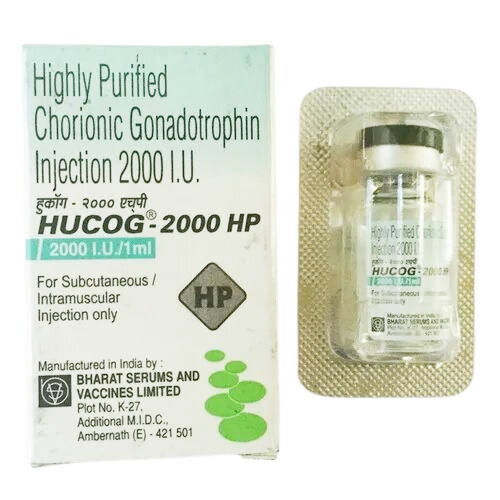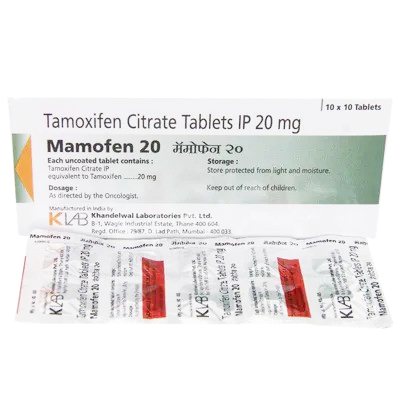Human chorionic gonadotropin (hCG) is a hormone primarily known for its role in pregnancy. Produced by the placenta shortly after the embryo implants in the uterine lining, hCG plays a crucial part in maintaining the corpus luteum, which secretes the progesterone needed to sustain early pregnancy. Beyond pregnancy, hCG has been harnessed medically for its role in fertility treatments and other therapeutic areas.
Despite its association with pregnancy, hCG is widely used in clinical medicine for both men and women. It has several therapeutic applications, from aiding fertility in women to treating hypogonadism in men, making it a versatile hormone with multiple medical indications.
How hCG Works: Mechanism of Action
In the body, hCG mimics the luteinizing hormone (LH) produced by the pituitary gland. In women, hCG stimulates the ovaries to release eggs by promoting ovulation. In men, it stimulates the production of testosterone and sperm, acting similarly to LH. Because of its LH-like action, hCG is commonly used in fertility treatments, especially in assisted reproductive technologies such as in vitro fertilization (IVF).
Additionally, hCG’s ability to increase testosterone makes it useful in treating conditions like hypogonadism in men, where natural testosterone levels are insufficient.
Clinical Applications of hCG
- Fertility Treatments:
- In women, hCG is administered as part of fertility protocols to induce ovulation, particularly in patients undergoing treatments like IVF or intrauterine insemination (IUI). It is often combined with other drugs like clomiphene or gonadotropins to enhance ovarian stimulation and help the body produce mature eggs.
- In men, hCG is used to treat infertility caused by low sperm counts. It helps stimulate the testes to produce testosterone and promote spermatogenesis, especially when paired with follicle-stimulating hormone (FSH).
- Hypogonadism in Men:
Male hypogonadism, a condition where the body produces low levels of testosterone, can lead to symptoms like decreased libido, erectile dysfunction, fatigue, and reduced muscle mass. hCG therapy stimulates the Leydig cells in the testes to produce testosterone, restoring hormonal balance and mitigating symptoms of hypogonadism. It is particularly useful in men who wish to maintain fertility while undergoing testosterone replacement therapy, as hCG preserves sperm production. - Cryptorchidism (Undescended Testicles):
In pediatric patients, hCG is used to treat cryptorchidism, a condition where one or both testicles fail to descend into the scrotum. By promoting the production of androgens and stimulating the descent of the testicles, hCG helps avoid potential complications associated with this condition, such as infertility and increased risk of testicular cancer later in life.
Key Research on hCG
- hCG in Assisted Reproductive Technologies:
Numerous studies have shown the effectiveness of hCG in assisted reproductive technologies (ART). A study published in Human Reproduction found that administering hCG prior to egg retrieval in IVF significantly improved the chances of successful ovulation and embryo development. By mimicking the natural LH surge, hCG plays a critical role in ensuring that the eggs are mature and ready for fertilization. - hCG and Male Hypogonadism:
Research published in The Journal of Clinical Endocrinology & Metabolism highlighted the benefits of hCG in men undergoing testosterone replacement therapy (TRT). In this study, men who received hCG alongside TRT preserved their fertility and maintained sperm production, a notable advantage over traditional testosterone therapies, which often suppress fertility. - hCG in Weight Loss:
While controversial, hCG has been marketed for weight loss in conjunction with extreme low-calorie diets. However, the scientific consensus, as reported by The American Journal of Clinical Nutrition, suggests that hCG does not have a direct effect on fat loss or appetite suppression. Most studies point out that any weight loss associated with hCG regimens is primarily due to the caloric restriction, and not the hormone itself.
Administration and Dosage
hCG is typically administered via injection, either subcutaneously (under the skin) or intramuscularly. The specific dosage and treatment protocol depend on the condition being treated:
- For ovulation induction: A single dose of 5,000-10,000 IU is commonly used after ovarian stimulation to trigger ovulation.
- For male hypogonadism: Doses range from 1,000-2,000 IU administered several times per week, depending on the individual’s testosterone levels and response to therapy.
- For cryptorchidism in children: Doses vary based on the child’s age and condition severity, with courses typically lasting several weeks.
Patients should always follow their healthcare provider’s dosing instructions carefully, as improper use of hCG can lead to complications, including ovarian hyperstimulation syndrome (OHSS) in women and gynecomastia (breast enlargement) in men.
Potential Side Effects of hCG
While generally well-tolerated, hCG can cause side effects in some patients. The most common side effects include:
- Women: Ovarian hyperstimulation syndrome (OHSS), abdominal pain, and bloating. In severe cases, OHSS can cause fluid accumulation in the abdomen and chest, necessitating medical intervention.
- Men: Gynecomastia, acne, and water retention. In rare cases, prolonged hCG use may cause an excessive increase in testosterone levels, leading to side effects like mood swings, aggression, and an enlarged prostate.
- Children: Early puberty (precocious puberty) can occur in boys being treated for cryptorchidism, manifesting as rapid growth, pubic hair development, and deepening of the voice.
Precautions and Contraindications
- Pregnancy: hCG should not be used during pregnancy unless medically indicated, as it can interfere with the body’s natural hormone regulation.
- Hormone-Sensitive Conditions: Patients with hormone-sensitive cancers, such as breast or prostate cancer, should avoid hCG therapy due to its potential to stimulate tumor growth.
- Allergic Reactions: Individuals with a known allergy to hCG or any of its components should not use this medication.
Conclusion
Human chorionic gonadotropin (hCG) plays a vital role in both reproductive medicine and hormone therapy. Its ability to mimic the body’s natural luteinizing hormone makes it an invaluable tool in the treatment of infertility, hypogonadism, and cryptorchidism. Ongoing research continues to shed light on the therapeutic potential of hCG, particularly in men’s health and reproductive treatments.
For healthcare providers and patients alike, understanding the proper use, benefits, and potential risks of hCG is crucial for optimizing treatment outcomes and ensuring safe, effective care.











Reviews
There are no reviews yet.